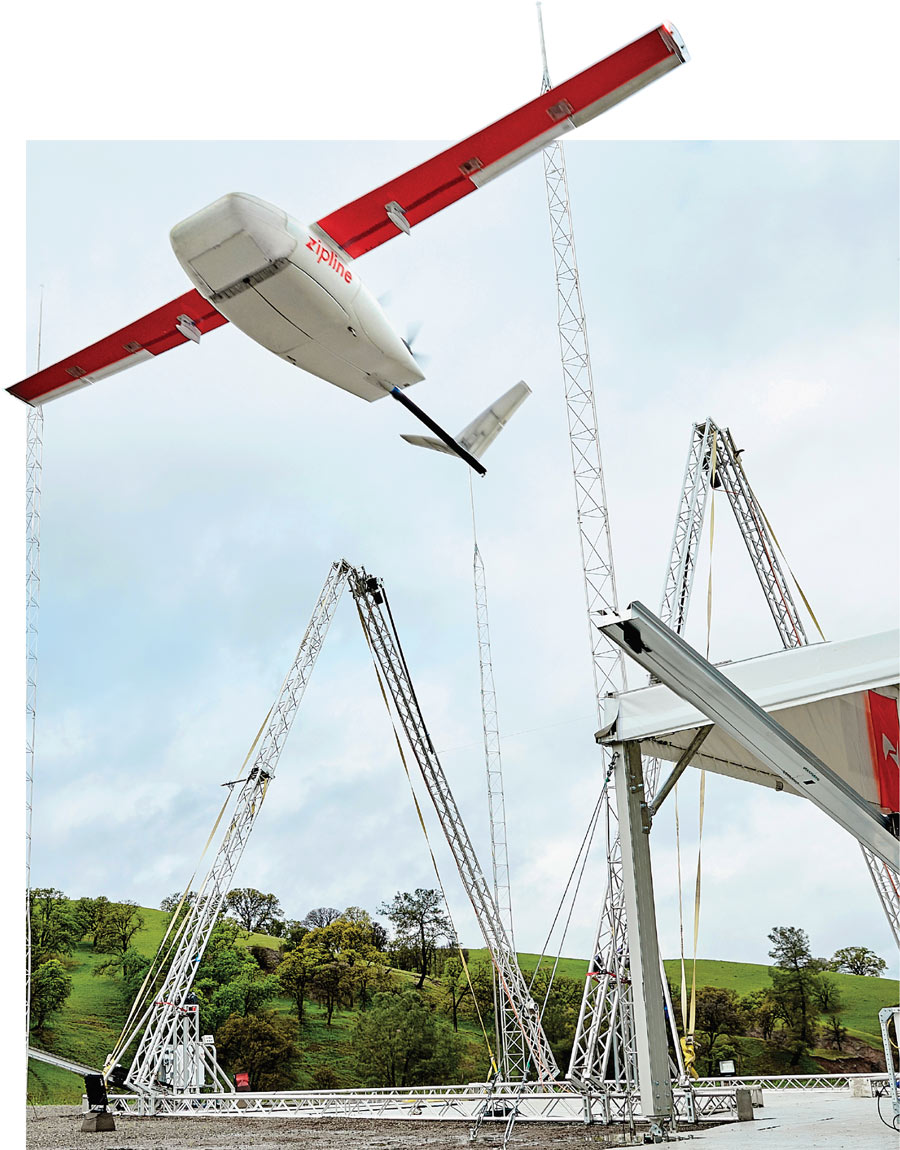 School of Medicine
School of MedicineFuture of Health Care Delivery
Weitz looked to the sky for a solution. Drones, unmanned aerial vehicles, might not have helped the laboring girl, but because they can fly above rutted, unpaved roads, they could deliver much-needed medications, vaccines and other supplies to remote villages. In Sierra Leone, for instance, where maternal mortality rates are soaring, drones could deliver blood to women experiencing postpartum hemorrhaging as well as drugs to stop the bleeding.
Weitz is passionate about broadening access to health care, whether in African villages or remote towns in the United States. In West Texas alone, she noted, some 450 rural communities are “pharmacy deserts,” meaning they lack nearby pharmacies. Drones, she reasons, could address the problem.
As a business venture, Weitz founded DronesRx. The startup company proposes to use drones to deliver medications, supplies and telehealth opportunities to communities in northwest Texas, New Mexico and Oklahoma.
